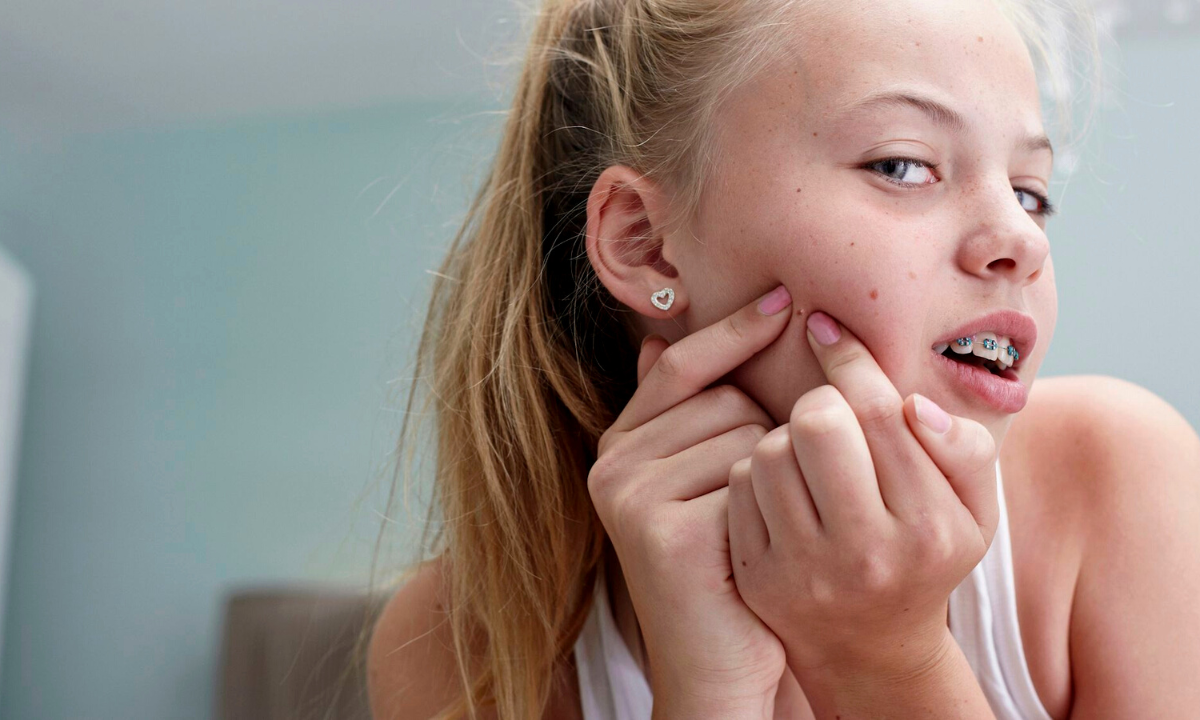Teen Mental Health: The Psychosocial Impact of Acne
By Dr. Janani Palanivel on 03-09-2022

Acne vulgaris is a common inflammatory skin disease of adolescents, the prevalence reaching up to 80%. Indeed, acne is no more a disease of adolescence, rather it is extending up to adulthood, the late 30s and 40s. It has clearly evolved to be a lifestyle disease. While the complications of acne is acne scarring, the psychological impact it brings is immense, especially in teens. Emotional dissatisfaction with appearance, embarrassment, low self-esteem, lack of self-confidence, and social inhibition with peers are some of the psychological impact acne could bring to teens.
Teens are the primary victim of acne. It is a very common problem that almost every teen suffers from. Teens go through many hormonal changes in the pubertal stage of their life. This hormonal change is the primary reason for acne breakout. Adult women suffer from acne during pregnancy and during menstruation because of the same reason. Girls get acne at a very young age. Generally, they will get acne around 10. While boys might get it around 14. This teen acne can occur anywhere on the body. This affects not only the skin but also the mental health of the teen.
Acne can mentally bring a person down. Even adults struggle to deal with acne. The inflammatory skin condition is very noticeable as it usually occurs on the face. This makes people have low self-esteem. If it is hard for adults to manage, imagine teens. Teens are at a stage where they are discovering new things about their bodies. In addition, they are not mature. So, even a minor inconvenience might seem like the end of the world for a teen.
Teens who suffer from acne will have low self-esteem. Not everyone, but the vast majority, does have low self-esteem. When kids have low self-esteem, it makes them develop some bad habits. These kids might start avoiding eye contact with others. The reason for this, they feel ashamed of their body. As said, teens are not mature enough to understand other feelings. Some may make fun of their skin which will make the person feel bad. Kids tease each other all the time, but it can have unfortunate outcomes. Anxiety and depression could induce suicidal ideations in such teens.
Social anxiety is another common problem. Teens can be affected by social anxiety at a very young age. Feeling insecure about their body makes them avoid socializing. Such social inhibitions would affect their endeavors. Earlier, acne was considered merely as a cosmetic concern, however, studies have established that it is an impact on the quality of life issues in individuals. Thus, the management protocols worldwide consider QOL as a vital factor for a satisfactory therapy of acne and acne scarring.
Parents should identify such skin problems in teens and seek medical help at the earliest. Often there are situations where acne is considered just a teen problem and that it will fade away on its own. However, with environmental factors, stress, and nutritional factors, acne could remain as a long-term concern for many. Thus, early recognition of such skin issues will bring an overall better health outcome.